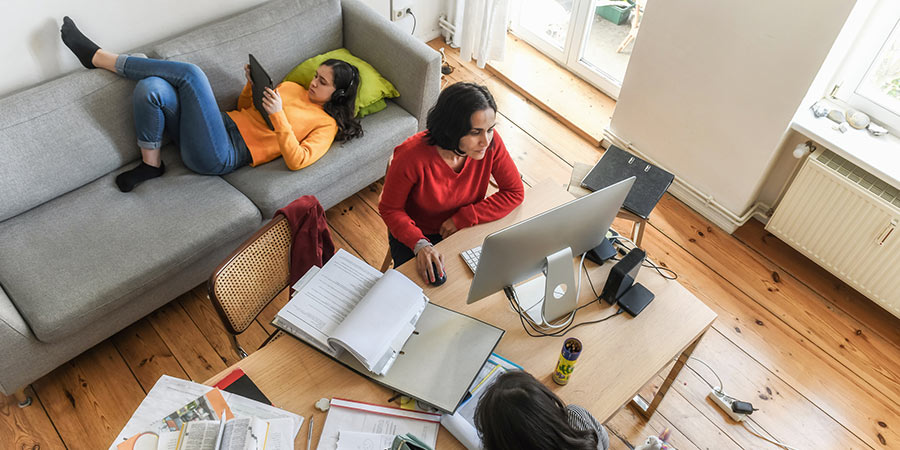Separating Work from Home
June 9, 2020
Since the coronavirus (COVID-19) pandemic, many have had to move to a new workplace – their own home. While there are many advantages to working from home, some have found it significantly challenging. For those who were not prepared for the transition, being thrown into a new environment can have negative impacts on mental health and work-life balance.
The most important thing you can do – and the best thing for your productivity – is to take care of yourself first. Working from home presents the opportunity to work many more hours than a typical day in the office, which can have a very negative effect on well-being and make it difficult to disconnect from your job. Here are a few tips for separating “work” from your home:
#1: Keep a consistent schedule.
When you have set work hours and a consistent schedule, it’s easier to disconnect from work at the end of the day. Start and end at the same time every day and build in breaks to go on walks or physically move. Sitting at your computer for eight hours, five days per week, is both physically and mentally unhealthy.
#2: Communicate and maintain boundaries with yourself and others.
In many jobs, working from home allows for varied hours. Communicate your hours with your coworkers and ask that they do not contact you about work-related tasks outside of that timeframe. You should also follow the boundaries you are asking of others. If you have a work device, put it away after hours. It is also important to try, as best as you can, to avoid using your personal devices to answer emails after the workday is complete. Ask your coworkers and friends to hold you accountable if you are struggling with this.
#3: Don’t work if you are sick.
Just because you are already home doesn’t mean you should work when you are sick. When you are ill, your mind and body need to rest, and you may also need medical care. GBMC is a safe place (click here to learn more about our safety measures and protocols) and we are here to care for you when you need it. You may also want to consider telehealth, which allows direct communication with your care team from the comfort of your own home.
#4: Create a designated workspace and only go there to work.
Depending on your home environment, it can be challenging to create a space solely designated to work. If you have the luxury of an office in your home, take advantage of it and make sure that space is used only for work purposes. If you don’t have an office, try to find a table or specific space on your couch where you feel the most productive. If you have children or other people living in your home, make sure they know where your workspace is and the hours in which you will be unavailable.
#5: Find little things that make you happy.
During stressful times, the little things in life can make a huge difference in the way you feel. Find something (or several things!) that makes you happy and do it every day. It can be anything from enjoying a quiet morning cup of coffee, a cute mousepad, or listening to your favorite music during work. Find what works for you and stick with it.
For more tips on maintaining mental health during the COVID-19 pandemic, watch this interview with Dr. Anthony Chico, Chief, Emergency Psychiatry at GBMC.
*Click here for more information and articles about the coronavirus (COVID-19)*





